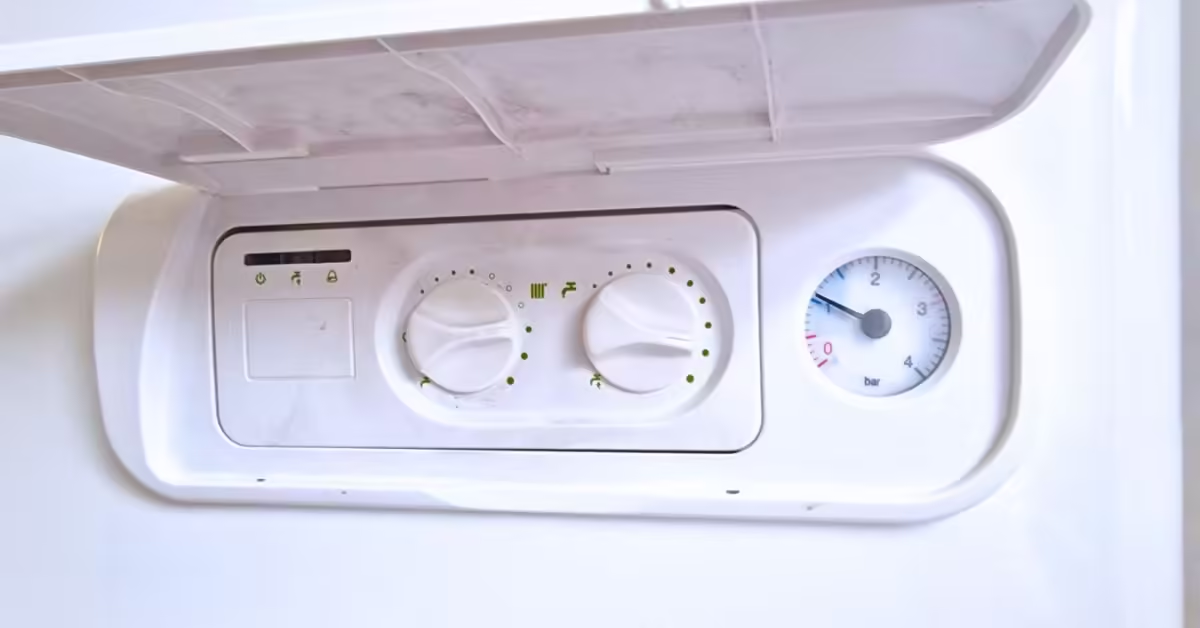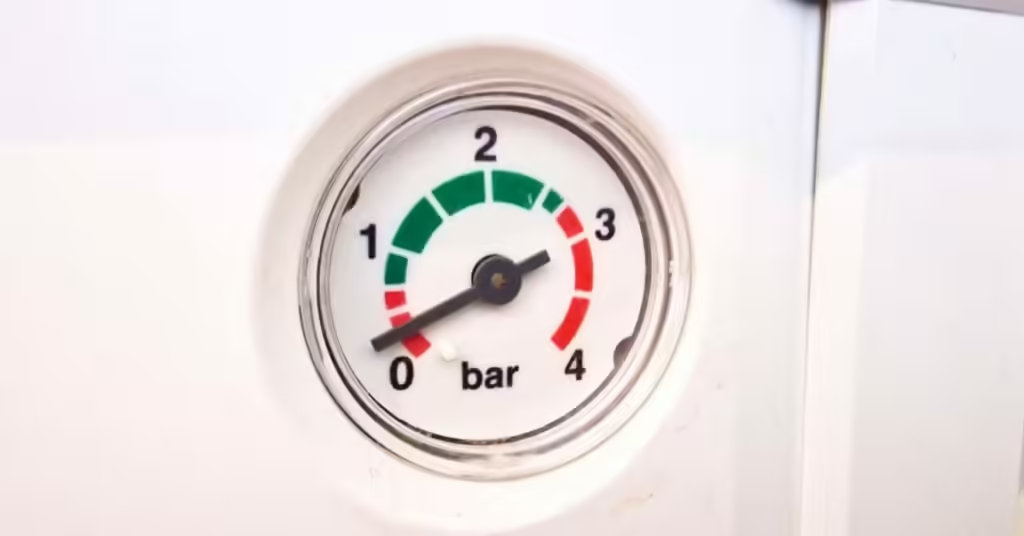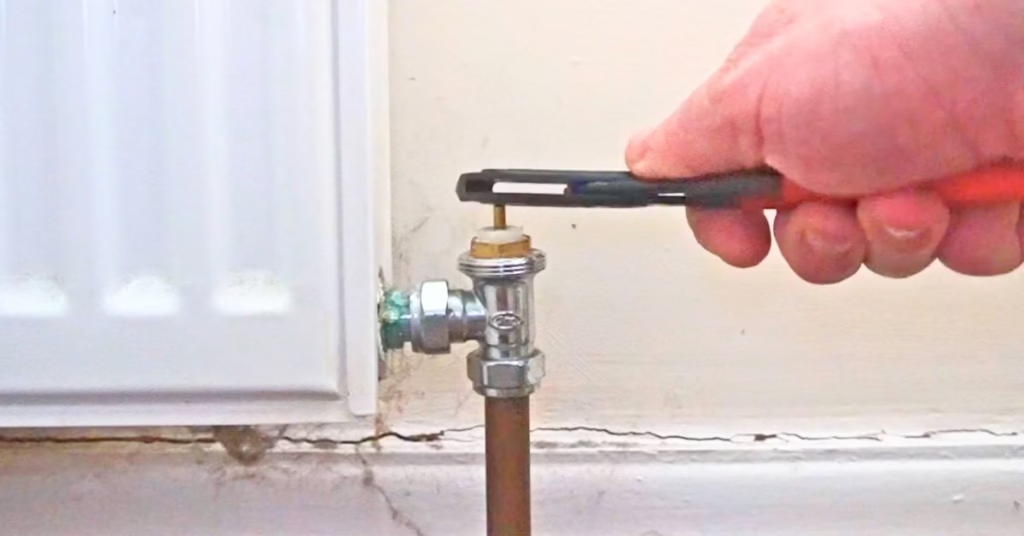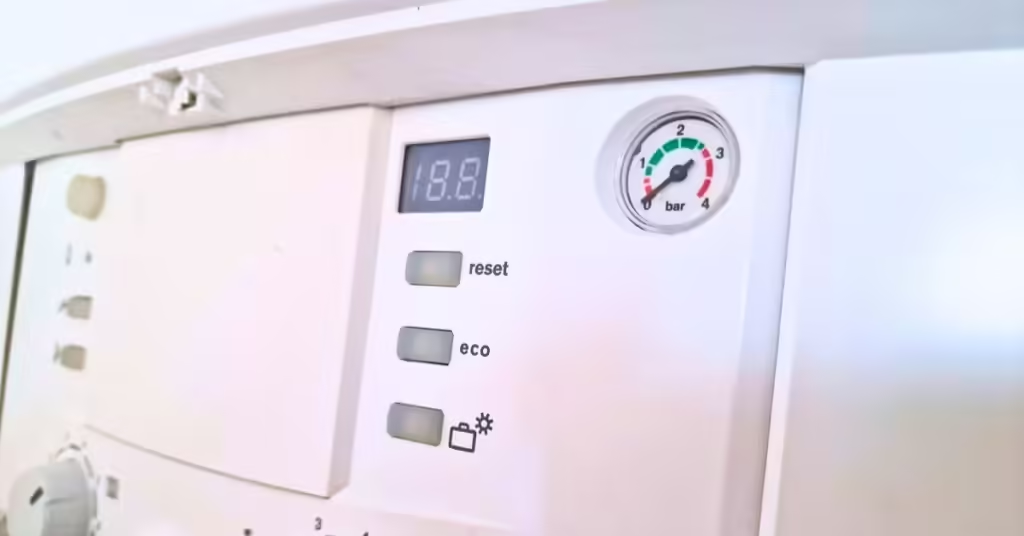Last updated on March 2nd, 2025
When your pressure drops too low, the boiler will stop working, which means no heating or hot water. The pressure should be between 1 and 1.5 bar when the radiators are cold. I have been repairing and servicing boilers for over a decade and have fixed many boiler pressure problems.
Vokera boiler pressure explained
Vokera boilers have a safety device called a pressure relief valve (PRV). If the pressure reaches 3 bar the PRV will open and the water will be let out as a safety precaution, the pressure gauge will drop to zero.
If your pressure is under 1 bar, you should increase it. If it’s over 1.5 bar when the heating is off and the radiators are cold, you should reduce it. The boiler pressure can rise to over 2 bar when the heating is on. This is perfectly normal as the heat expands the water inside the radiators when the heating is turned on.
Boiler pressure too low
Low boiler pressure is very common and can cause your boiler to stop working. If your pressure becomes too low you need to repressurise it. If the pressure drops below 1 bar you should increase it.
How to increase the pressure:
- Open one valve fully
- Open the other valve slowly until you can hear the water
- Close bother valves when the pressure has reached 1 to 1.5 bar
- Reset the boiler (if needed)
- Turn the heating on
Do not open both filling loop valves fully straight away as the water pressure in the house might be too much for the boiler and cause the pressure to shoot up too high.
How often should you need to repressurise a boiler?
You shouldn’t need to repressurise your boiler at all. A pressurised heating system is sealed so if you need to increase the pressure regularly then the water is getting out. If you have to repressurise once or twice a year I wouldn’t worry about it.
Boiler pressure too high
There are many reasons for a boiler’s pressure to be too high. If the pressure reaches 3 bar the PRV will let the water out. So, if your pressure is above 1.5 bar when the heating is and the radiators are cold, you should reduce it. To reduce the pressure you must let some water (or air) out of the heating system.
How to reduce boiler pressure:
- Bleed a radiator
- Open a drain off valve
- Open the pressure relief valve
- Crack a nut
- Magnetic filter
The first thing you should do to reduce the pressure is bleed the air out of every radiator. There might not be any but if there is, removing it will drop the pressure. Bleeding water out of one radiator is the easiest way to reduce boiler pressure but also the slowest.
Boiler keeps losing pressure
A boiler that keeps losing pressure means there’s a problem that needs to be fixed.
Most common reasons:
- A Leak on the central heating system
- The expansion vessel has lost its air
- Pressure relief valve passing water
- Filling loop open
You should check if the pressure is rising to 3 bar when the heating is on to narrow down the problem. If the pressure is dropping to zero without rising too high first, you most likely have a leak somewhere on the system.
Summary
If your boiler pressure is too low or too high, fixing it is important. Repressurising a Vokera boiler is an easy job. It can save you from paying a plumber to do an easy task.
If you have to keep repressurising your boiler, you should get that problem found and fixed as soon as possible.
Have any questions? Drop them in the comments below, I’ll do my best to help! If you found this post helpful, don’t forget to share it with others who might benefit.





Hi,
My Vokera loses pressure slowly. We replaced the expansion vessel and the pressure now drops quicker (goes from 1.5 to 1 bar in a week). The boiler is used for underfloor system and when the pressure is low we actually can hear how air circulates in the system and gets louder as the pressure drops. We don’t see any signs of leak. The pressure never goes up or over 3 bar either when the system starts. Now we are thinking of replacing the pressure relief valve. Unfortunately the clip that holds it in place is stuck and we are not able to move it. Any suggestion on how to remove the PRV and the pin/clip without damaging the plastic around the clip? Any other suggestion on what else might cause the pressure drop? Thank you!
And thank you for all the useful details you share in your post.
Hi Victoria,
You should see water coming out the copper pipe outside if it’s the pressure relief valve that’s causing the pressure to drop, I wouldn’t replace it if there’s no water coming out.
You’ll have to force the clip out somehow, I’d have to see it to give you specific recommendations but large water pump pliers usually help.
It could be the underfloor heating that’s leaking, if you’ve got any isolating valves to isolate it from the rest of the system you should do that and see if the pressure keeps dropping, if not you could get some iso valves fitted.
You should isolate the boiler from the system first though, top the pressure up to 1.5 bar then close the flow and return valves on the boiler and leave it for as long as it takes to usually drop, if it doesn’t drop then you’ll know it’s on the heating system and not the boiler.
We have a Vokera Excell 80 Sp boiler that has been in place for about 20 years+ from what we can understand. We only moved in a year ago.
It keeps losing pressure and sometimes but not everytime there is water underneath the boiler. If we repressurise it it loses pressure within a couple of hours. The pipe outside looks dry although I do intend to do your bag check. We had a plumber or two in to look and they said replace because parts are expensive. What do you think we should attempt of your above things before giving in and getting a new one. We are in Scotland.
Do you think by opening the valve to put more water in we have upset the balance and hence it keeps dropping pressure?
Neither of the plumbers looked at the expansion vessel or checked that for air vs water.
We would like to DIY fix it if possible.
Sounds like an expansion vessel problem, it’ll need recharged or possibly replaced. You’ve done well to get 20+ years out of a boiler. It might be worth getting a new one rather than paying for repairs as it could end up costing you more.